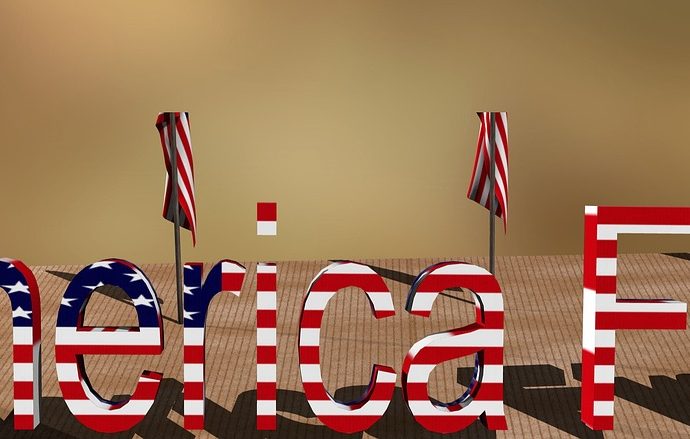By Rita Abrahamsen
Graduate School of Public and International Affairs, University of Ottawa
“How much confidence do you have in US President Donald Trump to do the right thing regarding world affairs?” When asked this question in a recent Pew Research survey, 75% of Canadians answered “no confidence.” By contrast, 58% of Nigerians expressed their confidence in President Trump, with only 29% doubting his ability to “do the right thing.” The respondents in Africa’s most populous country were not alone in their support for “the Donald”: In the five African countries included in the survey, a full 50% of participants felt confident about the US president, compared to a world median of only 22%.
At the same time, we know very little about Trump’s policies towards Africa, and the White House has yet to nominate someone for the post of assistant secretary of state for African affairs — the top administration envoy to the continent. What we do know, however, does not immediately correlate with the confidence Africans invest in the president’s ability to “do the right thing” by Africa.
The Trump budget proposes to cut aid to Africa from $8 billion to $5.2 billion in the 2018 fiscal year, a stark drop by any measure. USAID and the State Department face a budget cut of 32%, and some of the world’s poorest countries, including the Central African Republic, Niger, and Sierra Leone may lose all of their US development assistance. Contributions to UN peacekeeping missions — many of which are in Africa — have already been reduced, with the US ambassador to the UN boasting that the “cuts are only just getting started.”
During his first week in office, the president revived the so-called Mexico City Policy that prevents US funding to any organization that provides abortion services, including information and advice. As a result, even more African women and their children will die in childbirth. Efforts to prevent HIV and malaria are collateral damage of the Mexico City Policy, as many health clinics offer not only family-planning services, but also other prevention and treatment programs.
While support for development and humanitarian assistance is being slashed, Trump’s proposed budget is splurging on security and military. The proposed Pentagon budget for the 2018 fiscal year calls for an additional $52 billion on top of the current $575 billion base budget. How much of this will go towards Africa is unknown, but every indication is that there will be more for the training of African militaries, for joint exercises, and for counterterrorism efforts. Since 11 September 2001, the US has established an unprecedented military footprint on the continent, and its military activities continue to expand. Approximately 4000 US troops are stationed at Camp Lemonier in Djibouti, from where they conduct training and joint exercises with various continental forces, but also targeted missions and drone strikes against suspected terrorists.
Secretary of State Rex Tillerson has made it clear that in Africa “America First” means “security first”: “The continent of Africa is so important from the standpoint that first, from a national security view, we cannot let Africa become the next breeding ground for a re-emergence of a caliphate for ISIS. We also cannot allow the terrorist networks that weave their way through Africa to continue unabated.” Increasingly training is focused on developing African elite counter-terrorism forces.
In April, Trump signed a directive giving the US military authorization to conduct offensive counterterrorism airstrikes in Somalia targeting al-Shabab, an al-Qaeda-affiliated terrorist group. Previously, US forces were only able to conduct such operations in self-defence situations when African Union or Somali government troops accompanied by American advisers were under attack. In countering violent extremism, the focus on human security is increasingly mobilized in the name of war fighting.
Given opposition in Congress, not all of Trump’s proposed budget cuts will be implemented. The massive increases in defence spending may also be curtailed. It is one of the paradoxes of the Trump presidency that former four-star generals and admirals are lining up to defend USAID and development assistance, arguing that “military power alone cannot prevent radicalization, nor can it, by itself, prevent despair from turning to anger and increasing outbursts of violence and instability.”
Such arguments and protests aside, it seems clear that in Africa “America First” will mean “security first” and “development second.” While Trump’s Africa policy has not yet come into full view, every indication points towards a strengthening of security concerns and further militarization — and a parallel downgrading of development, democracy, and human rights. In other words, the confidence that so many Africans express in Trump’s ability to “do the right thing” seems certain to result in disappointment.
This article is part of a six-blog series that follows from a workshop on International Relations in a Post-Liberal Era. The workshop was hosted by CIPS and marks the start of the Copenhagen–Ottawa Research Exchange (CORE). For other blogs in this series, click here:
After Abdication by Peter Marcus Kristensen
NATO: A Liberal Alliance in an Increasingly Illiberal World? by Alexandra Gheciu
Liberal Interventionism: The Crisis Within by Katja Lindskov Jacobsen
Trump’s Genius by Michael C. Williams
CETA after Opinion 2/15: Legal Clarity or Confusion? by Jens Ladefoged Mortensen










